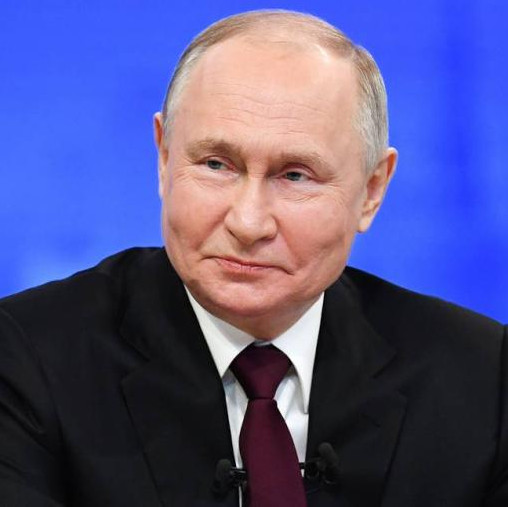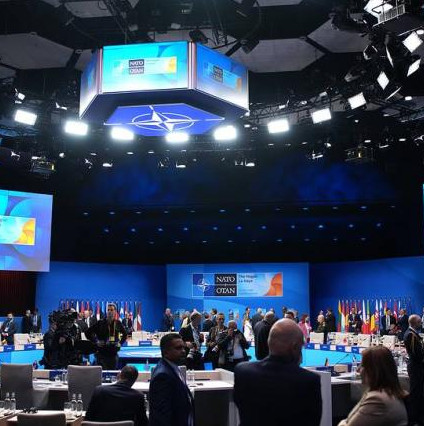
The Russian Armed Forces continue to amaze with their achievements. No sooner had we discussed Tank biathlon competition on the forums, commented on MAKS-2013 air show and thanked the sailors for their support of Syria, as the next actions of the Russian Navy attracted public attention. Northern Fleet (NF) sea force headed by the heavy nuclear-powered guided missile cruiser Pyotr Velikhiy went on the Arctic route expedition.
After leaving Severomorsk September 3, the ships headed for the New Siberian Islands separating the Laptev and East Siberian Sea. Their crews have a crucial mission to protect Russia's status as a leading Arctic power.
As reported by Northern Fleet Commander Admiral Vladimir Korolev, a unique operation on icebreaking escort of more than 10 warships and auxiliary vessels through areas with difficult ice conditions located between the Taimyr Peninsula and the Severnaya Zemlya archipelago ended September 11.
During the expedition the group has already crossed the Barents and Kara seas and covered more than 1.5 thousand miles. Before overcoming the difficult areas, the ship's pilots of Ka-27 helicopters, based on Pyotr Velikhiy, carried out ice reconnaissance from the air.
The world's largest operating non-aircraft nuclear-powered attack warship Pyotr Velikhiy participation in the campaign is very symbolic. The cruiser, with the crew exceeding 700 people, has successfully completed dozens of command assignments in the North Atlantic and the Arctic, and conducted anti-piracy operations in the Gulf of Aden, Arabian Sea. The warship is unrivaled in the number of weapons as well as their quality. In January 2013, Pyotr Velikhiy became the first warship in the history of the Russian Navy to be awarded the Order of Nakhimov.
It was the crew of Pyotr Velikhiy that was given the task of protecting the Russian interests in the Arctic. And there is really something to protect - according to the UN, Arctic oil reserves are 90-100 billion tons. This figure exceeds the resources of Russia and Saudi Arabia put together and explains why, in the face of climate changes, the Arctic becomes an area of conflict of world powers' interests.
Realizing this, the Russian military and political leadership has taken many measures to protect the country's strategic interests in the Arctic region. In 2001, Russia was the first to file a claim with the UN, giving the validity of its claims for 18% of the Arctic with the border length of 20 thousand kilometers. Today the work is underway to establish Arctic motorized infantry brigades; new equipment is developed to be specifically adapted to the conditions of the Far North. There are regular exercises in the Arctic region; hydrographic and geological exploration has been actively conducted.
Importantly, the salary of a lieutenant in the North is up to one hundred thousand rubles a month which allows the military to focus on performing their tasks. All of these activities, as well as the sea mission of Pyotr Velikhiy demonstrate the Russian willingness to defend its interests in the Arctic.
At the same time the Arctic is not only rich with deposits of energy resources. The region produces almost half of the world's fish production. The development of merchant shipping on the Northern Sea Route, connecting the Atlantic and Pacific oceans, creates huge economic prospects as ice melts.
In his turn, the head of the Center for Military Forecasting, Candidate of Military Sciences, Colonel Anatoly Tsyganok believes that the main advantage of Northern Sea Route laying in the Russian territorial waters is the ability to "lead warships from the western continent to the east and vice versa." The ability of the Northern Fleet to patrol the territory to the east of the Barents Sea will greatly enhance the potential of this strategic formation of the Russian Navy.
The issue of Russian strategic security is of great importance. After all, if NATO warships equipped with missile defense systems appear in the seas of the Arctic Ocean, the potential of the Russian strategic nuclear forces will be put at risk. Therefore, it is the Northern Fleet that faces the task of countering foreign sea-based missile defense systems falls.
The struggle for the Arctic is geopolitical in nature and requires a systematic and coherent approach. It is significant that at a time when a part of the Russian fleet is protecting the interests of Russia in the Mediterranean Sea, covering the borders of Syria, another part is breaking through the Arctic ice. The future of the country is decided in these very distant from each other corners of the planet.
It should be recognized that the coordinated actions of the Russian diplomacy and the Armed Forces in the Arctic and Syria indicate that the military and political leadership of Russia has managed to come to a common understanding of the place and role of the country in modern world and is able to act cohesively to achieve common goals.


